I am currently working on a TypeScript API, which requires some additional features binding to the Object prototype (Object.prototype).
Consider the following code:
class Foo {
}
interface Object {
GetFoo(): Foo;
GetFooAsString(): string;
}
//This is problematic...
Object.prototype.GetFoo = function() {
return new Foo();
// Note, this line is just for testing...I don't want my function to just return a blank instance of Foo!
}
//This is ok.
Object.prototype.GetFooAsString = function () {
return this.GetFoo().toString();
}
You might want to try this directly at the Playground.
As you can see, I have a class called Foo (not the actual object name I will be using). I have also extended the Object interface to include two new functions. Finally I have implemented the functions against the prototype (these work in pure JavaScript, it's just TypeScript that complains).
Where I have annotated "//this is problematic..." TypeScript highlights this with a red squiggly, and shows the following error:
Cannot convert '() => Foo' to '{ (): Foo; (): Foo; (): Foo; (): Foo; (): Foo; (): Foo; (): Foo; (): Foo; (): Foo; (): Foo; (): Foo; (): Foo; (): Foo; (): Foo; (): Foo; (): Foo; (): Foo; (): Foo; (): Foo; (): Foo; (): Foo; (): Foo; (): Foo; (): Foo; (): Foo; (): Foo; (): Foo; (): Foo; (): Foo; (): Foo; (): Foo; (): Foo; (): Foo; (): Foo; (): Foo; (): Foo; (): Foo; (): Foo; (): Foo; (): Foo; (): Foo; (): Foo; (): Foo; (): Foo; (): Foo; (): Foo; (): Foo; (): Foo; (): Foo; (): Foo; (): Foo; (): Foo; (): Foo; (): Foo; (): Foo; (): Foo; (): Foo; (): Foo; }': Call signatures of types '() => Foo' and '{ (): Foo; (): Foo; (): Foo; (): Foo; (): Foo; (): Foo; (): Foo; (): Foo; (): Foo; (): Foo; (): Foo; (): Foo; (): Foo; (): Foo; (): Foo; (): Foo; (): Foo; (): Foo; (): Foo; (): Foo; (): Foo; (): Foo; (): Foo; (): Foo; (): Foo; (): Foo; (): Foo; (): Foo; (): Foo; (): Foo; (): Foo; (): Foo; (): Foo; (): Foo; (): Foo; (): Foo; (): Foo; (): Foo; (): Foo; (): Foo; (): Foo; (): Foo; (): Foo; (): Foo; (): Foo; (): Foo; (): Foo; (): Foo; (): Foo; (): Foo; (): Foo; (): Foo; (): Foo; (): Foo; (): Foo; (): Foo; (): Foo; (): Foo; }' are incompatible
() => Foo
Either this is just a TypeScript bug (I know it's still in development phase, so a lot of the bugs need ironing out, and I have illustrated some of these on CodePlex already), or, I'm missing something.
Why am I getting this issue?
If it's not a TypeScript bug, how can I fix this?
